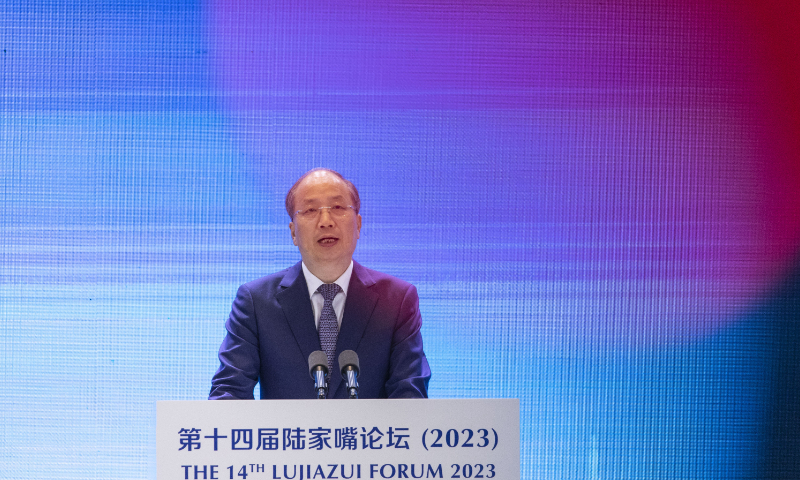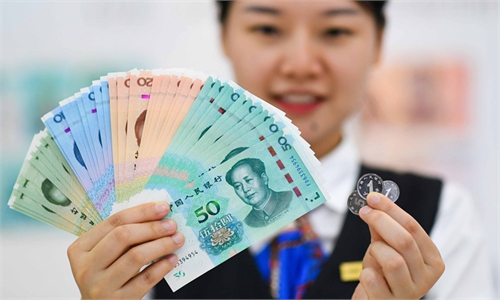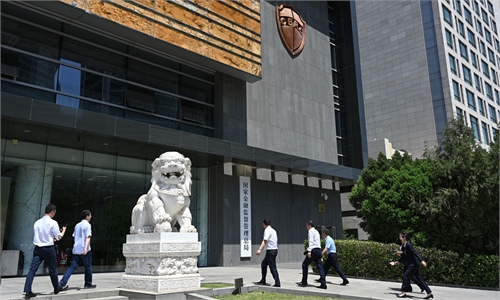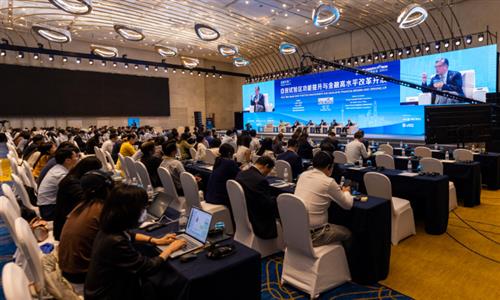
Yi Huiman, chairman of the China Securities Regulatory Commission (CSRC), delivers a speech at the Luijazui Forum in Shanghai, China, on June 8, 2023. The forum runs through June 9. Photo: VCG
The China Securities Regulatory Commission (CSRC) will resolutely crack down on insider trading and market manipulation amid recent volatility in China's stock market, a senior government official said on Thursday.
Recently, investor discussions are heard on quantitative trading, market fairness, short-term funding speculation and corresponding institutional responsibilities, CSRC Chairman Yi Huiman said at the Lujiazui Forum in Shanghai.
The CSRC attaches great importance to the regulation of the capital market, and the commission will continue to strengthen the monitoring and supervision of equities trading, paying special attention to new practices such as quantitative trading, Yi said.
There will be firm crackdowns on any illegal practices, in order to maintain a healthy market order and ecosystem.
Financial fraud, market manipulation and insider trading are three major issues for the domestic stock market, which have been effectively rectified with stronger regulation measures, Dong Dengxin, director of the Finance and Securities Institute of the Wuhan University of Science and Technology, told the Global Times on Thursday.
As individual investors are the major players in the A-share market, tighter supervision and monitoring will better safeguard the interests of small and medium-sized investors, Dong said.
As to latest stock market volatilities, Li Daxiao, chief economist at Shenzhen-based Yingda Securities, said that Yi's remarks will give a significant boost to market confidence and stabilize the market. More measures to maintain market fairness and trading order will be implemented.
China's stock market rebounded on Thursday, as the Shanghai Composite Index rebounded to 3,213 points, a gain of 0.49 percent from previous trading session. The Shenzhen Component Index edged up 0.13 percent.
Yi said that the CSRC will implement an innovation-driven development strategy while adhering to the differentiated and distinctive positioning of the Science and Technology Innovation Board, the ChiNext board and the Beijing Stock Exchange.
Yi added that the CSRC might establish a product system covering various categories such as stocks and bonds, and improve mechanisms targeting equity incentives and employee stock ownership. He noted that more measures will be introduced to boost high-quality tech innovations in the country.
Amid China's continued economic rebound, some overseas asset managers have rebalanced their allocations from the US to Chinese market.
For example, Europe's largest asset manager Amundi is moving out of US dollar-denominated assets in favor of Chinese assets. The CSRC in May gave approval for US-based Morgan Stanley to set up a futures venture in China, making it the second foreign institution to have a majority-owned futures business after JP Morgan.
China's capital market has become the world's second-largest with more than 5,000 A-share listings, with total market capitalization of 85 trillion yuan ($11.95 trillion).



